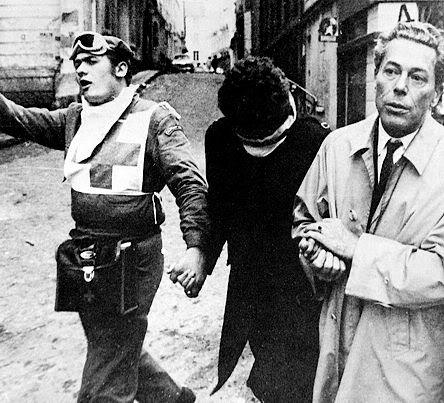
At that subtle moment when man glances backward over his life, Sisyphus returning toward his rock, in that slight pivoting he contemplates that series of unrelated actions which become his fate, created by him, combined under his memory’s eye and soon sealed by his death. Thus, convinced of the wholly human origin of all that is human, a blind man eager to see who knows that the night has no end, he is still on the go. The rock is still rolling.
I leave Sisyphus at the foot of the mountain! One always finds one’s burden again. But Sisyphus teaches the higher fidelity that negates the gods and raises rocks. He too concludes that all is well. This universe henceforth without a master seem to him neither sterile nor futile. Each atom of that stone, each mineral flake of that night filled mountain, in itself forms a world. The struggle itself toward the heights is enough to fill a man’s heart. One must imagine Sisyphus happy.
– Myth of Sisyphus by Albert Camus

And what other ultimate values to choose then, than those creations, born from Men, yet transcending those creators, as existing in the Kingdom of ideas, richer and wider in content than any single man or all men at any one time can perceive? I mean of course the great, ever unfinished, monument of creation and knowledge, that is Art and Science?
– Chance and Necessity by Jacques Monod
–
Sir,
I am a thirteen year-old boy who is very interested in research. I know that you are one of the greatest researchers in the world (our professor of science told us so).
Excuse me for bothering you, but I would like to know what maxim guides your life. Perhaps I could apply that when I grow up. – Bruno
My Dear Bruno,
Thank you very much for your letter that has interested me a great deal. However, you have posed a difficult question because I do not think that one can find one maxim that, alone, allows one to conduct an entire life and to govern the sometimes painful choices with which one can be confronted.
All I can tell you are the qualities that appear most important to me. If one were to pose this question to me, I would reply without a doubt that they are: courage, as much moral as physical, as well as the love of truth, or rather, the hatred of lies.
I prefer to speak of the hatred of lies rather than the love of truth, since one is never sure holding the truth, whereas with lies, one is almost always able to detect them, to discover them, and to denounce them… – Jacques Monod
Wow, wow! Just finished Brave Genius by Sean B. Carroll, a dual biography of two Albert Camus (philosopher) and Jacques Monod (biologist), both of whom worked in the French Resistance in World War II and both of whom would go on to win Nobel Prizes in their respective fields.
As a philosophy major who read a good deal of Camus in college, I assumed I’d like “the Camus parts” of the book, but I now think Monod’s story is the more powerful. In what I understand to be a surprising sort time for such a feat, Monod and his peers at the Pasteur Institute in France made incredible advances in the then-nascent field of molecular biology, creatively hypothesizing and then expertly proving, via brilliant experiments, new ideas about how cells use DNA to produce proteins (RNA, etc.).
A biologist himself, Carroll, whose book is far from perfect, does a nice job conveying the challenges biologists tackling this problem in the 1950s faced– namely needing to make educated guesses about how life itself worked, then using current technologies to rigorously prove these guesses.
The easiest way for me to relate something from my recent life to this is when I’m making educated guesses about how a jQuery method works or what a logical name for a specific Twitter API endpoint is. But of course in that case my challenge is to put myself in the mind of the developers who wrote jQuery and the Twitter API, respectively.”If I were them, how would I design this method to work?”, “What if it works like this?” and such.
Monod and his colleagues were playing a similar game, but instead the “developer” whose designs they were trying to guess at was… God? No. We’ve lost God with Nietzsche and Camus (“negate the gods”). Rather they were guessing at the product designs of something much more earthly: a confluence of chance (random genetic mutation between generations) and necessity (the appearance of inevitability that Darwinian evolution lends to HOW THINGS ARE).
The word “genius” is thrown around a lot yadda yadda yadda, but these two might have been close to it. And the natural question is to look at their experiences as younger men, specifically during their respective involvements in the French Resistance. It’s difficult not to conclude that in that crucible of terror and uncertainty, full of so many examples of how terrible humans can be to one another, these men steeled themselves with something just a bit higher and in doing so gained a powerful clarity.
In the middle of winter I at last discovered that there was in me an invincible summer. – Camus in L’ÉTÉ